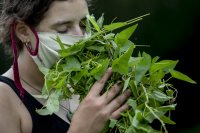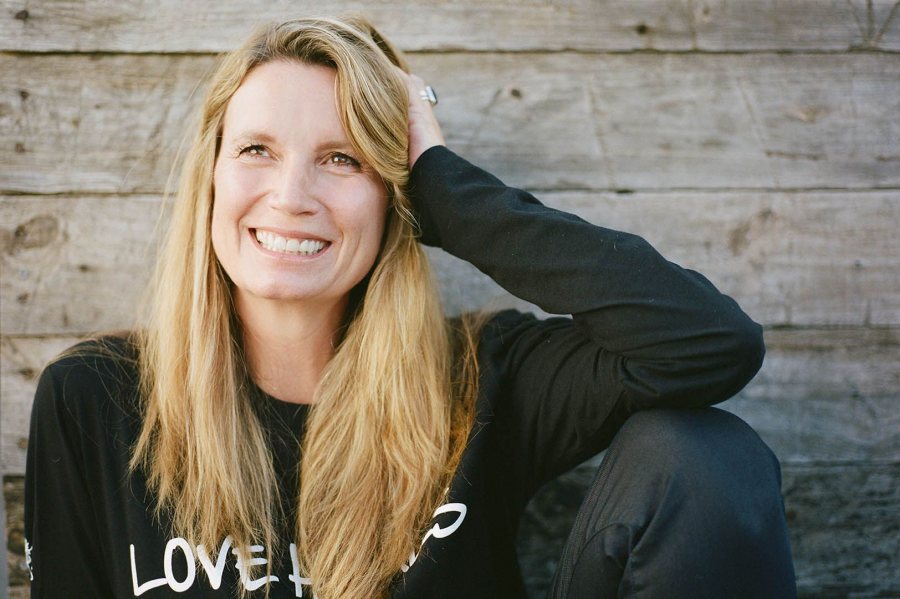
Nov. 12 Civic Forum: Founder of enterprise that empowers at-risk women
“I’ve known Becca Stevens for almost 30 years, and she continues to amaze me,” says Darby Ray.
“She is a phenomenally brave and talented woman — both a visionary and a down-to-earth practitioner. She is also a fantastic speaker,” says Ray, director of Bates’ Harward Center for Community Partnerships, which presents a talk by Stevens this week.
Founder of Thistle Farms, a social enterprise for women who have survived prostitution, trafficking and addiction, Stevens speaks at 7:30 p.m. Thursday, Nov. 12, in the Edmund S. Muskie Archives, 70 Campus Ave.
An author, popular speaker and Episcopal priest, Thistle Farms founder Stevens offers the talk Burning Desire: Our Longing for Justice and Hope for Healing in a Civic Forum sponsored by the Harward Center. Her appearance is part of a series of events she’s offering in Maine.
The event is open to the public at no cost. Thistle Farms personal care products will be offered for sale. For more information, please call 207-786-6202.
Stevens will talk about her work with Thistle Farms, located in Nashville, and its growth into a movement for women’s freedom. Two women who work at Thistle Farms will join Stevens in discussing the program.
Stevens will also consider economic empowerment as critical to healing and will challenge her audience to live in harmony with the deepest human desire to love one another well.
Stevens was featured in the 2015 PBS documentary A Path Appears and has been featured by The New York Times, ABC World News, National Public Radio and CNN. She is the author of numerous books, including this year’s Letters from the Farm: A Simple Path for a Deeper Spiritual Life (Morehouse Publishing), as well as a popular blog.
She was named by the White House as one of 15 Champions of Change for violence against women in 2011; and was named 2014 Humanitarian of the Year by the Small Business Council of America.
Thistle Farms stands for the truth that, in the end, love is the most powerful force for change in the world. The program employs more than 50 survivors through social enterprises that include a natural body care company, Thistle Stop Cafe, a paper and sewing studio, and a global marketplace called Shared Trade.
Started in 1997 by Stevens under the name Magdalene, Thistle Farms includes a two-year residential program and advocacy services for up to 700 women yearly.





